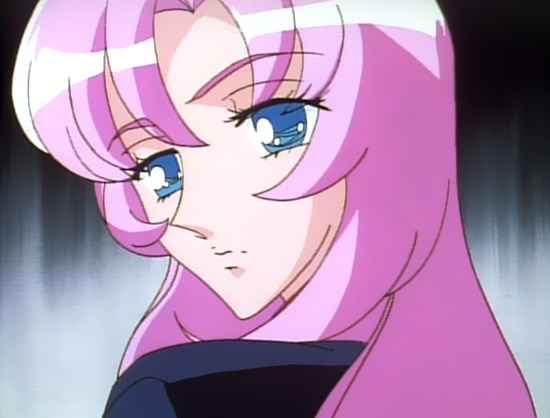08.14
Back to what I said about desire, desire does not always have to come from wicked or even merely questionable intentions in order to be a destructive force. Here, Miki’s fight with Utena is driven out of a desire to free Anthy from the shackles of being a Rose Bride. Abolition? That ranks highly among noble goals, but good will doesn’t immediately translate into good actions. This seems to be what Ikuhara’s doing in this two-parter by showing that someone like Miki can be just like Saionji if given the right push. Good and evil are two sides of the same coin, and you could probably find so many examples in your life where bad people did good things and vice-versa.
For Miki at least, Ikuhara focuses on the notion of purity when looking at the multiplicity of human emotion. The student council members like Juri and Touga see Miki as their strength of purity, even though he sees it as a lack of perfection. The meaning here leads to how being perfect means having nowhere else to go in terms of ability, while being pure means you have nothing to hinder oneself from potential. Where Saionji and Nanami have let their flaws be their undoing in past episodes, Miki is brought down by his idea of purity not intersecting with others’ interpretations. He wants to talk tough by wanting the dissolution of the student council and being able to finally acquire what he’s wanted for so long, but that purity of his means that his mindset hasn’t been filtered through everyone else’s ideas. He might want to free Anthy, but Anthy never asked that from him. From that, his purity becomes misguided. He’s pure in the same way a child is pure, without bias but without wisdom either.
And due to his youthful naiveté, he searches for what can remind him of his childhood. Subjects from his actual childhood have been ravaged in his eyes, with the sister he idolized in this episode—as the sweet little girl with whom he composed ballads—portrayed as another woman that Touga pulls the old in-out in-out with. With his sister having become corrupted in his eyes due to sex, he can no longer recognize her as something nostalgic. It seems a bit simple-minded to think “my sister had sex with one of my friends? What a slut”, but you can imagine that coming from a boy who still obsesses over his younger years than what’s up ahead. Such a longing only becomes hollow when his sister reveals she couldn’t care less about the piano anyway. But he can’t see that, because purity often means being blind to reality.
He even thinks of Anthy as that “shining thing” he’s been looking for, like a baby looking for something sparkly to grab onto. I’m not trying to belittle his character or anything, but that seems to be what the show’s approach to him is. The student council represents corrupted desires, with Saionji’s abusive yet genuine desire for Anthy and Touga wanting someone to be his princess. Miki’s desire may be the least cruel, but it’s still just as unsighted as his fellow council members. Future episodes will help clear the matter up, so maybe I’m just making wild guesses from selective reading.
Also, I like how Ikuhara had Miki played by Sailor Mercury’s actor and Juri played by Sailor Moon’s actor. It’s always fun to go against typecasting like that.
